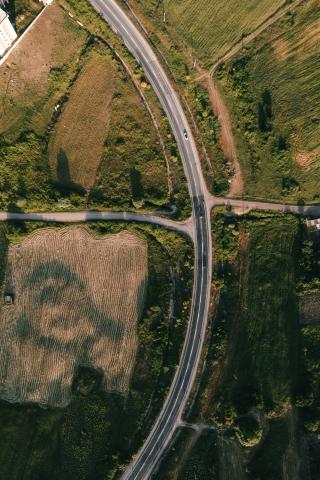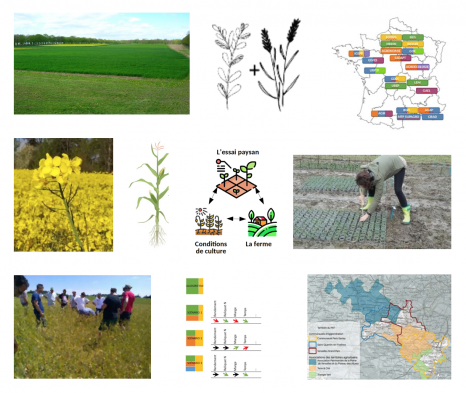
Annual day of the Agroecology Network (March 25, 2022)
The Interdisciplinary Network of Researchers in Agroecology organized its annual day open to all on March 25, 2022 at AgroParisTech. A presentation session of research works that are part of the agroecological transition took place in the morning. In different rooms, several presentations followed each other in a loop, in an interactive way.
The afternoon was devoted to the positioning of the scientific community in the agroecological transition of peri-urban territories, through different sessions.
The Agroecology Network was born in 2018 within the framework of LabEx BASC (the original structure of C-BASC). Its Steering Committee is coordinated by Safia Médiène (Agronomy lab, Graduate School Biosphera). To learn more about about the network and its achievements.
Figure: Various illustrations of work presented
.
PROGRAM (access some presentations)
Introduction by Safia Médiène, coordinator of the Agroecology network
I. Short presentation session of research works that are part of the agroecological transition
Cultivated mixtures and participatory selection:
- Modeling the effects of species association on aerial/root interactions (Laurène Perthame, ECOSYS)
- Determinants of maize-bean intercropping in the Tarbes region (Noa Vazeux-Blumental, GQE-Le Moulon)
- Better understanding the effect of practices and growing environment on varieties in decentralized and participatory selection (Michel Turbet Delof, Isabelle Goldringer, GQE-Le Moulon)
- Understanding the yield of mixed varieties: experimentation and modeling applied to soft wheat (Timothée Flutre, Meije Gawinowski, GQE-Le Moulon)
Agroecological practices and knowledge:
- Are innovative cropping systems less susceptible to septoria in winter wheat over a long period without fungicides? (Davide Bellone, Agronomy)
- Mixing species to produce ecosystem services: co-design of a tool for integrating and sharing scientific and empirical knowledge using functional ecology concepts (Malick Ouattara, Agronomy)
- Mobilizing and selecting intra- and inter-specific crop diversity for a systemic change towards a zero-pesticide agriculture (Jérôme Enjalbert, GQE-Le Moulon)
- The ecological knowledge of small-scale organic market gardeners (François Léger, ESE)
Territory and collective:
- What support for farmers' collectives in the agroecological transition? (Celina Slimi, SAD-APT)
- Defining collectively the actions of a TAP with the help of territory scenarios? Transposition of the Co-click'eau approach to territorial food issues (Claire Bernardin, Agronomy)
- VivAgriLab, a multi-actor platform for the (agro)ecological transition of a territory (Diane Maurissen, C-BASC)
II. Reflexivity: positioning of the scientific community in the agroecological transition
II.1 Contributions of the scientific approach to the agroecological transition of peri-urban territories. Case of the CARMA project (presentation by Antoine Brès and discussion led by Cyril Girardin (ECOSYS)
II.2 A case of the Plateau de Saclay: a project of transmission of a farm compromised by the construction of line 18, short presentation by Hadrien Bisson (Champs des Possibles) and Isabelle Goldringer (GQE Le Moulon)
Synthesis of the brainstorming on the positioning of researchers by an external witness (Denis Couvet, FRB and MNHN) and discussion
